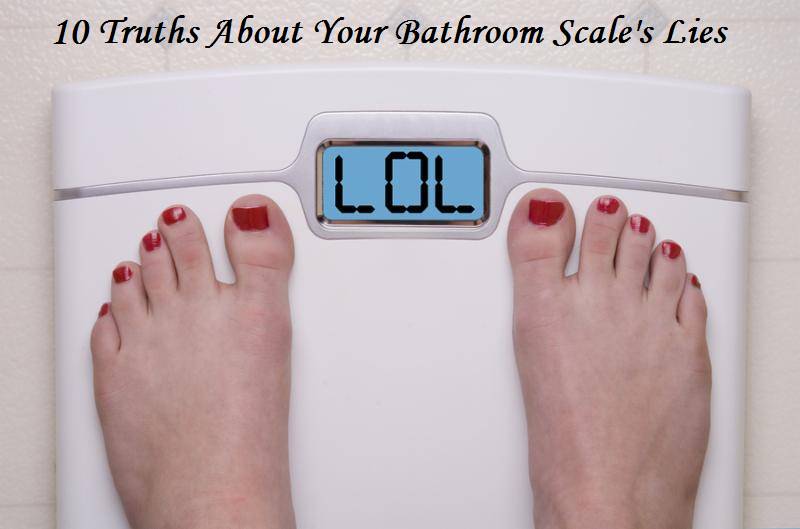5) Another highlight of the scale's indiscriminate nature: it can't tell if you've gained muscle.
A pound of muscle is like a small, compact brick, whereas a pound of fat is like a bulky, lumpy pillow. So that's why when you gain muscle and lose fat, your silhouette is slimmer and your body is more firm. Hence, building muscle makes it possible to drop clothing sizes (and lose inches) without a significant change in scale weight.
Consider the example that after 3 months of doing that new "bikini-body boot-camp" program, the scale says you've lost 5 pounds. This may not sound like much (heck, I'd take it!), but what if you had actually lost 8 pounds of pure fat and gained 3 pounds of muscle? That would be a pretty nice improvement in your body composition. But you would be misled, not to mention disappointed, if you only used a bathroom scale to track your progress. Refer back to better evaluations of health in #1.
6) What you eat during the days leading up to a weigh-in can dramatically influence the numbers.
Health Canada indicates that the recommended upper limit for daily salt intake is 2,300 mg sodium, which is easy to take in considering there's over 2,000 mg of sodium in a single teaspoon of table salt and upwards of 1,000 mg in the average can of soup!
Sodium is such a sneaky substance and the more highly processed a food is, the more likely it is to have a high sodium content. Be a savvy label reader.
When preparing food, always use natural, unrefined salt like Himalayan Pink Salt.
As HealthDiscovery.net puts it:
"Think of glycogen as a fuel tank full of stored carbohydrate. Some glycogen is stored in the liver and some is stored in the muscles themselves. This energy reserve weighs more than a pound and it's packaged with 3-4 pounds of water when it's stored.
Your glycogen supply will shrink during the day if you fail to take in enough carbohydrates. As the glycogen supply shrinks you will experience a small increase in appetite and your body will restore this fuel reserve along with its associated water.
It's normal to experience glycogen and water weight shifts of up to 2 pounds per day even in the absence of changes in your calorie intake or activity level. These fluctuations have nothing to do with fat loss..."
This is why physique competitors get rather obsessive not only about the scale leading up to their events, but especially with alcohol, salt and carb intake.
7) For all the ladies out there...it's not you, it's your HORMONES! Yep, certain times of the month can be marked by less-than-pleasing numbers on the scale.
Dr. Raquel Dardik, MD advises that some women can gain up to 10 lbs right before or during their period.
This is because the natural drop in the hormone PROGESTERONE just before your period often causes digestive complaints like water retention and constipation. And remember how heavy poop can be?
Our bodies also tend to lose Magnesium in the days before menstruation, which drives our INSULIN levels up leading to an increase in food cravings - especially for sugar.
Insulin is a hormone made by the pancreas that keeps blood sugar levels in check but is also considered a fat storage hormone.
* It's a good idea to supplement daily with Magnesium as most of us are already deficient in this multi-tasking mineral. I generally recommend taking 200-400 mg of Magnesium Bisglycinate before bed as it can have a calming effect. Even better…soak in a hot Epsom salt bath before bed.
These hormonal drivers, along with overeating to feed the cravings, can contribute to weight gain.







